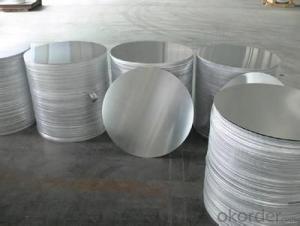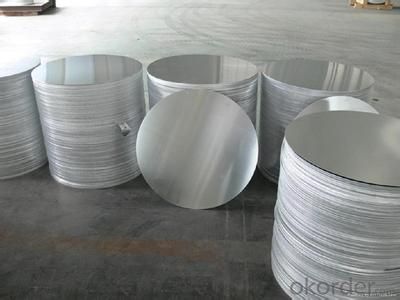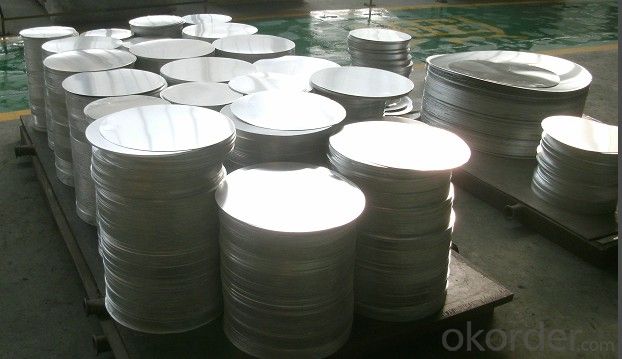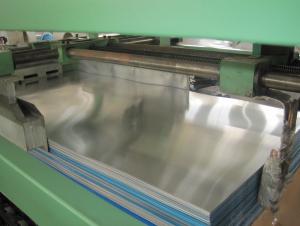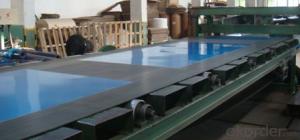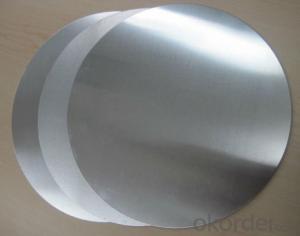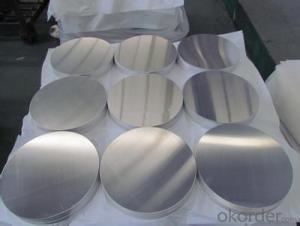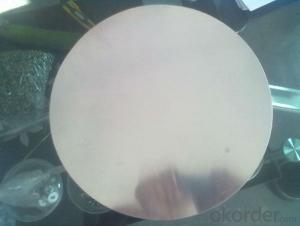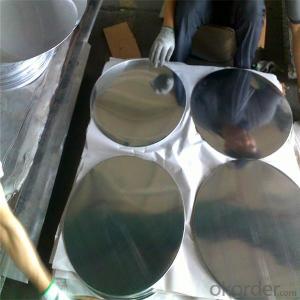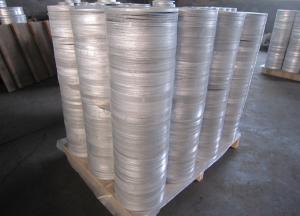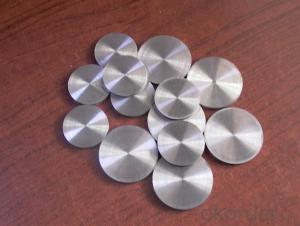Aluminum Sheets for Camper Roof - Aluminium Circle for Cooking Utensils and Couscoussier
- Loading Port:
- Shanghai
- Payment Terms:
- TT OR LC
- Min Order Qty:
- 2 m.t.
- Supply Capability:
- 2000 m.t./month
OKorder Service Pledge
OKorder Financial Service
You Might Also Like
Specification
Structure of Aluminium Circle for Cooking Utensiles and Cousscoussier Description:
Coated aluminum coil/sheet are of a wide range of colors, which gives wonderful appearance no matter in residential and commercial constructions of great exhibition centers.
The coated aluminum coil/sheet have been widely used in the fields of construction and decoration( garage doors, ceiling etc.), electronic appliances, lighting decoration, air-condition air pipes, sandwich panels and drainages etc.
Main Features of the Aluminium Circle for Cooking Utensiles and Cousscoussier:
1) High flexibility
2) Impact resistance
3) Excellent weather-proof durability
4) Anti-ultraviolet
5) High erosion resist
Images of the Aluminium Circle for Cooking Utensiles and Cousscoussier:
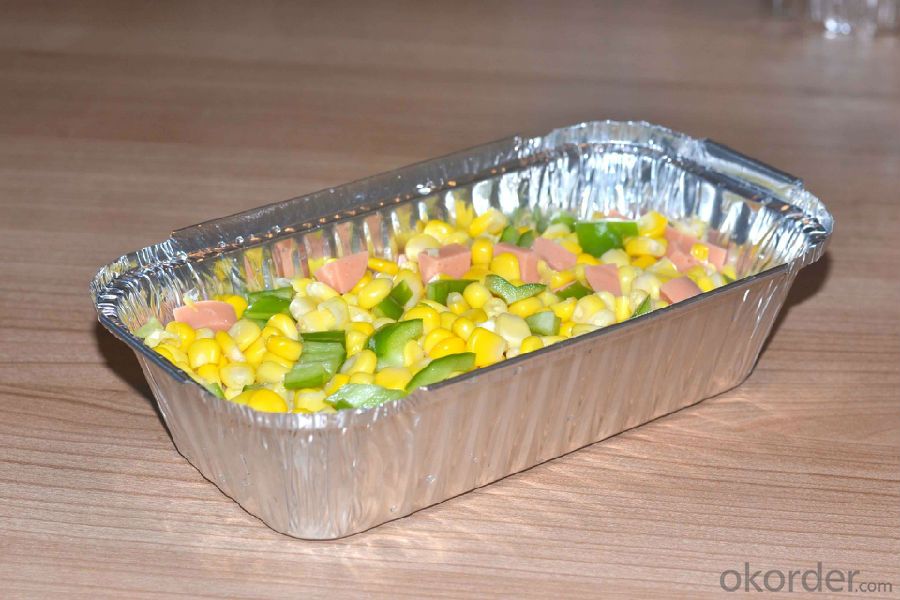
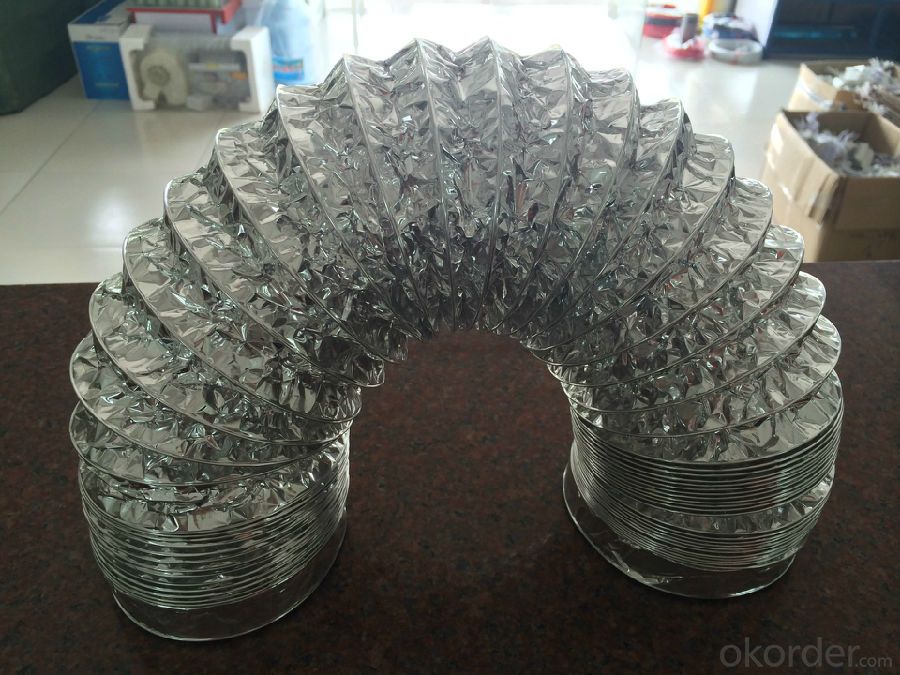
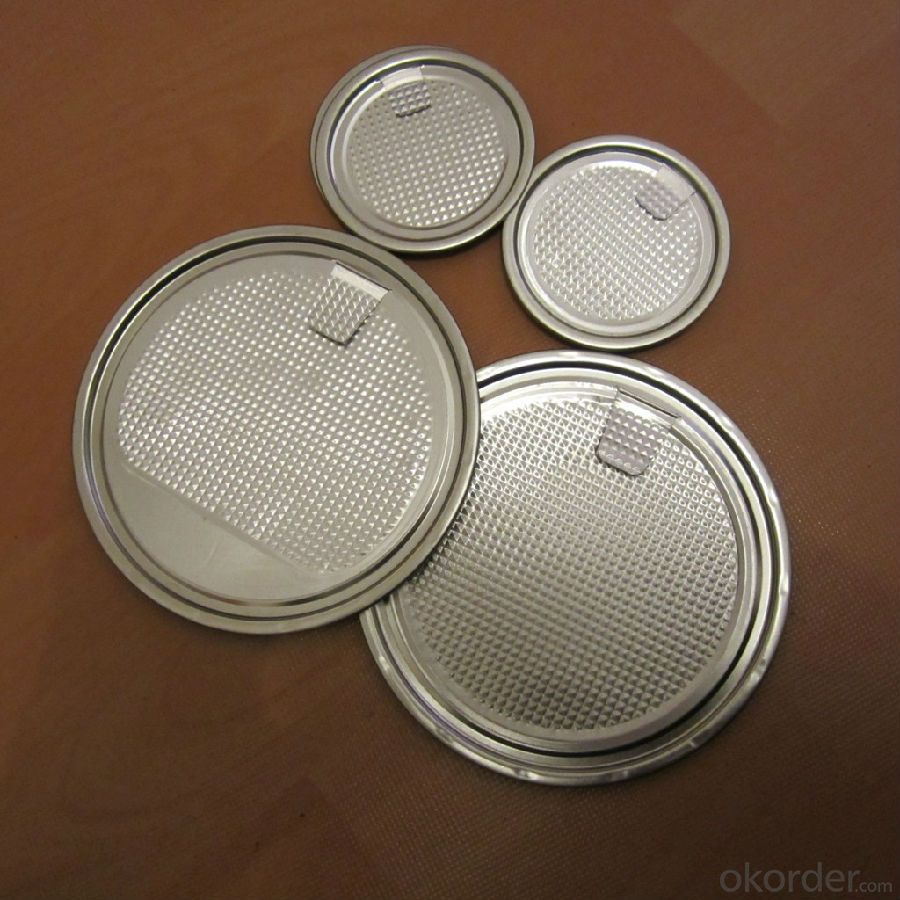
Aluminium Circle for Cooking Utensiles and Cousscoussier Specification:
Alloy | A1100,A3003,A1050,A8011 etc |
Temper | H16,H18,H24 |
Thickness | From 0.024mm to 1.2mm |
Width | Standard width:1240mm |
Special width:1300mm,1520mm,1570mm,1595mm | |
Diameter | Standard dia:1200mm |
Interior dia:150mm,405mm,505mm | |
Weight | 2.5 T/coil,3.0 T/coil |
Coating | PE, PVDF, AC |
Surface | Embossed, mill finish, coated |
Color | AS to code RAL |
Gloss | 10-90%(EN ISO-2813:1994) |
Coating Thickness | PE: more than 18 micron |
PVDF: more than 25 micron | |
Coating Hardness (pencil resistance) | More than 2h |
Coating adhesion | 5J(EN ISO-2409:1994) |
Impact Resistance | No peeling or cracking(50 kg/cm,ASTMD-2794:1993) |
Flexibility (T-bend) | 2T |
MEK resistance | More than 100 |
FAQ:
a.What is monthly capacity
---CNBM is one stated own company and our monthly capacity is about 2000tons.
b. Now which countries do you export your goods?
---Now we export to South East Asia,Africa, North America,South America ect.
- Q: Can aluminum sheets be used for architectural facades?
- Architectural facades can indeed utilize aluminum sheets. This versatile material possesses numerous advantages for facade applications. Its lightweight nature, durability, and resistance to corrosion render it suitable for a variety of weather conditions. The fabrication and installation of aluminum sheets are effortless, enabling design flexibility and the creation of intricate and elaborate facades. Moreover, aluminum can undergo various finishes, such as powder coating, anodizing, or painting, to enhance its visual appeal and achieve the desired aesthetic. In summary, employing aluminum sheets for architectural facades empowers architects and designers with an extensive array of options to fashion visually captivating and enduring building exteriors.
- Q: What is the typical hardness of aluminum sheets?
- The hardness of aluminum sheets can differ based on the particular alloy and temper, resulting in a range of 40 to 70 on the Brinell hardness scale (HB). This level of hardness facilitates the ease of forming, machining, and fabricating aluminum sheets, rendering them applicable in various industries such as aerospace, automotive, construction, and manufacturing. Notably, the hardness of aluminum sheets can be enhanced further by undergoing heat treatment processes like annealing or hardening, allowing them to meet specific demands and enhance their mechanical properties.
- Q: Are aluminum sheets suitable for use in HVAC (heating, ventilation, and air conditioning) systems?
- Aluminum sheets are indeed a fitting choice for HVAC systems. The popularity of aluminum in HVAC systems stems from its numerous advantageous properties. To begin, aluminum is both lightweight and robust, making it effortless to handle and install in HVAC systems. Its low density also enables cost-effective transportation and reduces the overall weight of the HVAC units. Furthermore, aluminum possesses exceptional resistance to corrosion. Given that HVAC systems often encounter moisture and condensation, particularly in air conditioning units, aluminum's corrosion resistance ensures its durability and longevity in such environments. Moreover, aluminum sheets exhibit commendable thermal conductivity, facilitating efficient heat transfer throughout the HVAC system. This property holds particular significance in heating and cooling applications, as it aids in effectively distributing the desired temperature. In addition, aluminum is a non-toxic material, rendering it safe for use in HVAC systems that circulate air within buildings. It does not emit any harmful particles or gases, thereby ensuring the quality of indoor air. Lastly, aluminum is highly recyclable, contributing to its environmental friendliness. The ability to recycle aluminum sheets reduces the carbon footprint associated with HVAC systems and aligns with sustainability objectives. Taking all these advantages into account, aluminum sheets undeniably prove suitable for use in HVAC systems. They offer an optimal combination of strength, corrosion resistance, thermal conductivity, safety, and environmental friendliness.
- Q: Is it possible to use aluminum sheets as a material for exterior siding or cladding on buildings?
- <p>Yes, aluminum sheets are commonly used for siding or cladding due to their durability, lightweight, and resistance to corrosion. They are low maintenance, can be easily shaped, and come in various colors and finishes. Aluminum's resistance to weathering and its ability to withstand temperature extremes make it a popular choice for both residential and commercial buildings.</p>
- Q: I may use the copper or brass for an inlay on a decorative piece of aluminum I'm working on.....
- This Site Might Help You. RE: which has the lower melting temperature....aluminum, copper, or brass...can you list all 3? I may use the copper or brass for an inlay on a decorative piece of aluminum I'm working on.....
- Q: How do aluminum sheets perform in terms of magnetism or electromagnetic interference?
- Aluminum sheets have a very low magnetic permeability, which means they are not attracted to magnets and do not retain a magnetic field. This property makes aluminum sheets highly resistant to magnetism and reduces their susceptibility to electromagnetic interference (EMI). Aluminum is often used in applications where shielding against EMI is necessary, such as in electronic devices, aerospace structures, and electrical enclosures. Due to its non-magnetic nature, aluminum sheets do not interfere with magnetic fields or create any significant electromagnetic fields of their own. This makes them ideal for applications that require minimal magnetic distortion, such as in MRI machines or sensitive scientific instruments. In addition to their low magnetism, aluminum sheets also have good electrical conductivity. This property allows them to effectively dissipate any induced currents or static charges, further reducing the risk of electromagnetic interference. Overall, aluminum sheets perform excellently in terms of magnetism and electromagnetic interference. Their low magnetic permeability, non-magnetic nature, and good electrical conductivity make them a favorable choice for applications where EMI shielding and minimal magnetic distortion are essential.
- Q: Can aluminum sheets be used for elevator panels?
- Yes, aluminum sheets can be used for elevator panels. Aluminum is a versatile and durable material that is commonly used in construction and architectural applications, including elevator interiors. It offers several advantages such as being lightweight, corrosion-resistant, and easy to clean. Aluminum panels can be customized to fit the specific design requirements of elevator interiors and can be finished with different surface treatments or coatings to enhance their appearance and durability. Additionally, aluminum is a sustainable material as it is highly recyclable, making it an environmentally-friendly choice for elevator panels.
- Q: This question asks for guidance on selecting a trustworthy supplier for purchasing aluminum sheets.
- <p>To choose a reliable supplier of aluminum sheets, consider the following: Check their reputation by reading reviews and testimonials. Ensure they have a valid certification and adhere to industry standards. Evaluate their product quality by requesting samples or visiting their production site. Assess their delivery times and reliability. Confirm they offer competitive pricing without compromising on quality. Look for suppliers with good customer service and after-sales support. Finally, consider their financial stability and ability to fulfill large orders.</p>
- Q: Can aluminum sheet be used for automotive body panels?
- Automotive body panels can indeed utilize aluminum sheets. In fact, aluminum is gaining popularity in the automotive industry due to its numerous advantages. Firstly, aluminum surpasses steel in terms of weight, leading to improved fuel efficiency and overall vehicle performance. Furthermore, aluminum boasts high resistance to corrosion, providing durability for body panels exposed to the elements. Additionally, aluminum exhibits remarkable formability, enabling the creation of intricate designs and enhancing design flexibility during vehicle production. Moreover, aluminum excels in absorbing crash impact, thereby enhancing vehicle safety. Nevertheless, it is important to acknowledge that utilizing aluminum for automotive body panels may necessitate specialized equipment and techniques for welding and repair purposes.
- Q: Can aluminum sheets be bent or formed?
- Yes, aluminum sheets can be bent or formed. Aluminum is a highly malleable and ductile metal, which means it can easily be shaped or bent without breaking. This characteristic makes it a popular choice for various applications, such as manufacturing automotive parts, aircraft structures, and household items. Aluminum sheets can be bent or formed using various techniques, such as press braking, roll bending, and stretch forming. These methods allow the aluminum sheets to be shaped into different angles or curves to meet specific design requirements.
Send your message to us
Aluminum Sheets for Camper Roof - Aluminium Circle for Cooking Utensils and Couscoussier
- Loading Port:
- Shanghai
- Payment Terms:
- TT OR LC
- Min Order Qty:
- 2 m.t.
- Supply Capability:
- 2000 m.t./month
OKorder Service Pledge
OKorder Financial Service
Similar products
Hot products
Hot Searches
Related keywords
